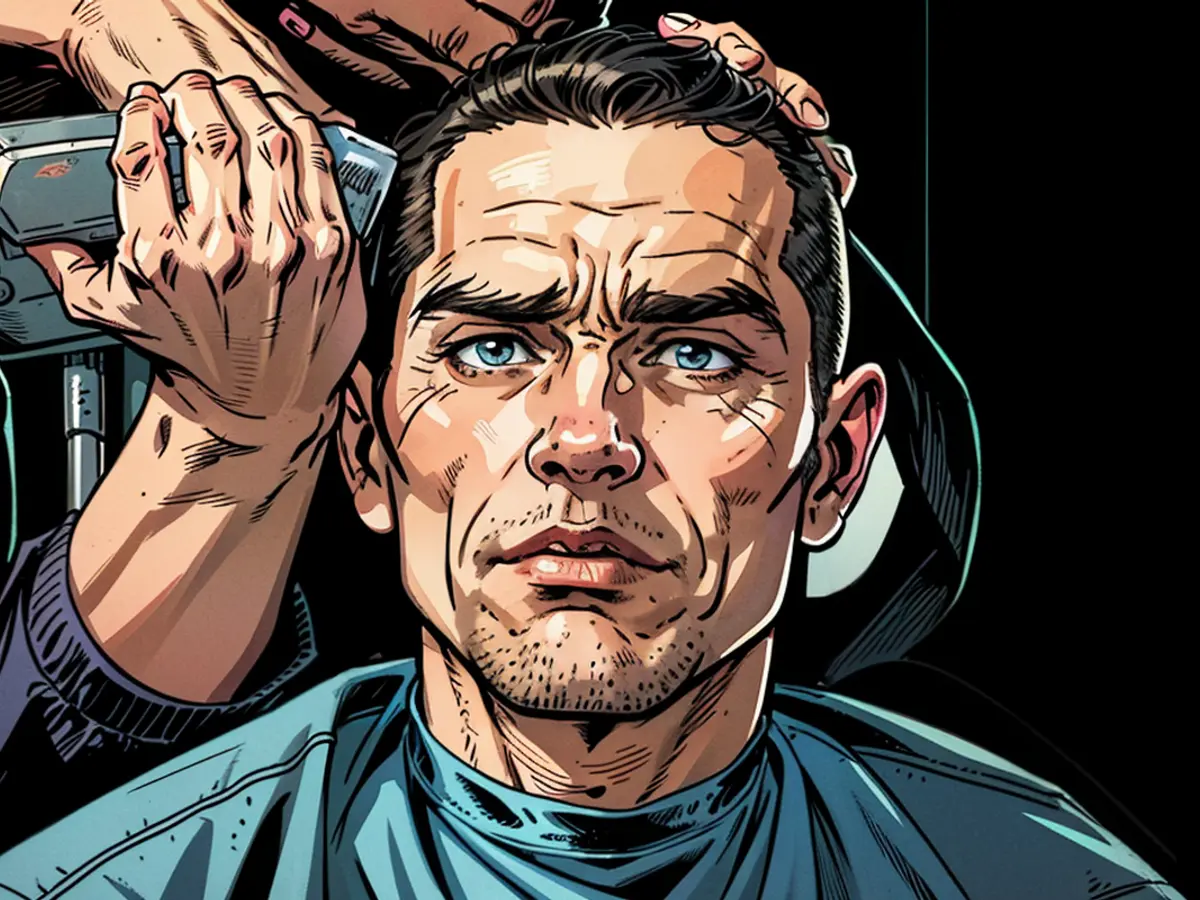Does cabbage help in growth and does daily washing harm?
Black, brown, or red, smooth, curly, or fuzzy - a human has between 80,000 and 120,000 hairs on their head. The number depends on the color - naturally blonde people lead the race. In summer, hairs mainly protect the scalp from sunlight. However, they are also susceptible to damage themselves. Some recommend special household remedies. Fact-check clarifies some myths.
Claim: Washing hair daily makes it greasy.
False! This mainly depends on genes. Dermatologist Alice Martin explains that the sebaceous glands responsible for producing oil cannot be stimulated or inhibited. Instead, people develop a feeling of whether their hair is oily or not: "One gets used to it optically."
However, one should be aware that with each wash, the so-called acid protection layer of the scalp is washed off, which in turn stimulates sebum production. Weinitschke from the Central Association of the German Hairdressing Trade explains that some people can slow down the re-oiling effect by increasing the distance between hair washes. "But that really depends on how much oil a person produces," says Weinitschke.
Claim: Saltwater and chlorinated water damage hair.
Partly true. Haemodermatologist Andreas Finner sees the danger primarily in the fact that saltwater and chlorinated water make hair coarser and less elastic, making it more susceptible to friction. They can then "rub against each other more or also against brushes or on pillows." Chlorine crystals can also intensify the sun's rays like a magnifying glass.
Blondes beware! "Depending on how strongly pools are chlorinated, they can cause a greenish tint in blonde hair," warns hairdresser master Weinitschke. High copper content in chlorinated water can cause such discoloration. This affects blondes, but also naturally light blonde people.
Claim: Hair masks work like sunscreen.
Only to some extent. "It makes sense to protect the hair from UV radiation, as this causes a chemical reaction in the hair keratin, which weakens the structure," explains Finner. Then, the hair becomes more susceptible to mechanical or chemical influences, and the risk of split ends and breakage increases. In addition, UV radiation from the sun can lighten the hair.
Hair masks with sunscreen protection, however, do not offer the same level of protection as, for example, a sunscreen with a factor of 50, says hairdresser master Weinitschke. But of course, the old-fashioned protection through a sun hat also still works.
Claim: Herbs like chamomile or thyme promote growth.
Little researched. On TikTok and similar platforms, videos circulate where green cabbage-parsley smoothies for drinking or thyme oil for applying to the hair for more growth are recommended.
Expert Martin, who specializes in educational work in the social media, evaluates such videos differently: On the one hand, there are no large-scale studies that confirm a positive effect. Only in smaller tests, some positive trends were observed. "One cannot medically say that it definitely works, but there are individual reports where it is assessed positively," says Martin.
Claim: Shaving makes it grow more.
False! "That's nonsense", says Martin. Hair grows independently of whether it is shaved or not. "What happens on top has no influence or feedback on genetics.", he explains.
Master Barber Weinitschke also classifies this claim as false: "Hair grows in a hair follicle under the skin and you can't catch it with a razor", he states.
Claim: It's better not to get it wet.
Partly true! According to Dermatologist Martin, the open scales of wet hair can make them break more easily. However, this is not a disease. "It's not a disease. Hair is like dead material", she says. Of course, one would rather avoid it.
Master Barber Weinitschke states that hair can be stretched to almost half its original length when wet. Therefore, it can also withstand combing well in this state. However, with too much pulling, it can eventually tear.
Sentence 1: Maintaining good personal hygiene, including regular hair washing, is crucial for overall health. Proper education about hair care can help dispel myths and promote factual information about hair care practices.
Sentence 2: Fact-checking common myths about hair care, such as the notion that washing hair daily makes it greasy, is essential for encouraging healthy hair hygiene practices. Understanding the science behind hair and hair care can contribute to better hair health and hygiene.








